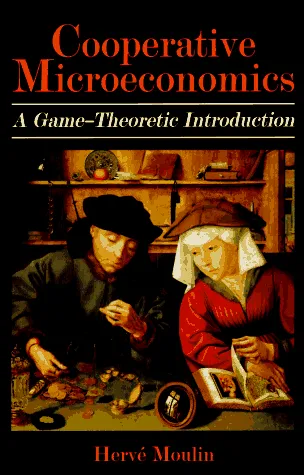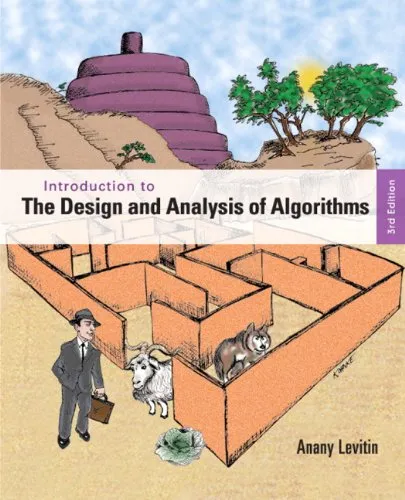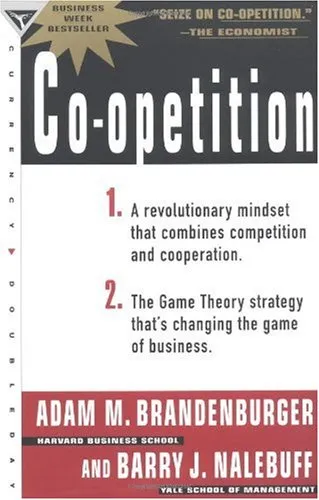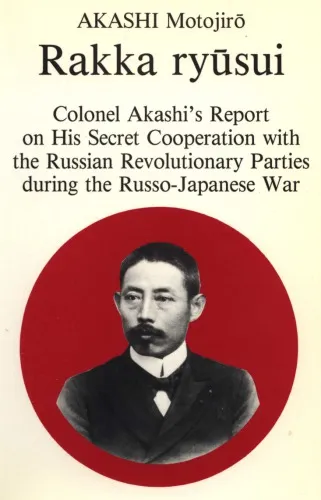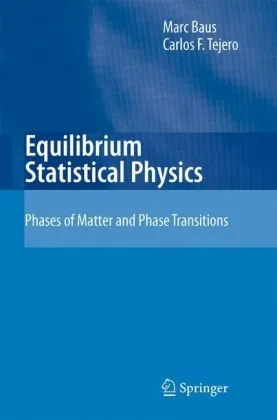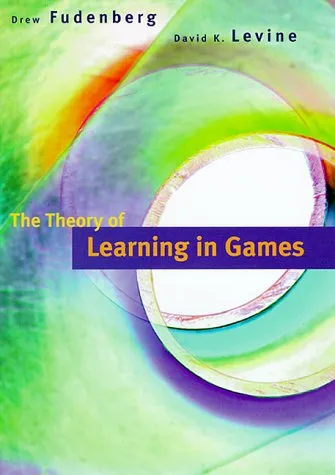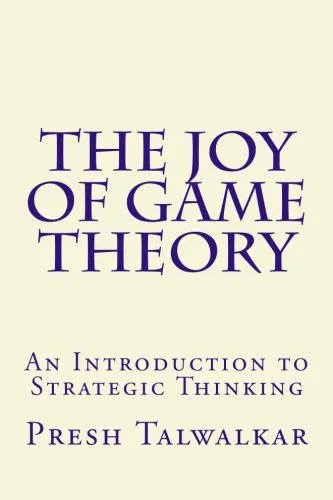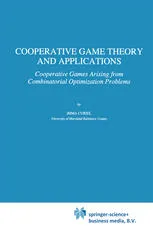Cooperative microeconomics : a game-theoretic introduction
4.0
Reviews from our users

You Can Ask your questions from this book's AI after Login
Each download or ask from book AI costs 2 points. To earn more free points, please visit the Points Guide Page and complete some valuable actions.Related Refrences:
Introduction to "Cooperative Microeconomics: A Game-Theoretic Introduction"
“Cooperative Microeconomics: A Game-Theoretic Introduction” is a foundational text that combines the rigor of economic theory with the elegance and analytical depth of game theory. Authored by Hervé Moulin, the book serves both as a theoretical exploration of cooperative behavior within economic environments and as an accessible guide for students and researchers alike. It delves into critical concepts at the intersection of cooperation and economics by applying game-theoretic principles to uncover deep insights into how rational decision-making can engender collective outcomes.
The book positions itself uniquely by focusing on cooperative game theory, in contrast to the more traditional non-cooperative frameworks. It provides a robust theoretical framework to explore how individuals and institutions can work together, sharing resources, benefits, and costs in a manner that satisfies fairness, efficiency, and stability. With its mathematical rigor and economic relevance, the book is a perfect companion for learners eager to understand the practical implications of cooperative models in real-life situations ranging from resource allocation to voting systems, coalition formation, and negotiation processes.
Detailed Summary of the Book
The book is structured to deliver a clear and systematic understanding of cooperative game theory within the larger realm of microeconomics. It opens with foundational concepts of cooperation in economics, introducing the reader to rules of fairness and the principles underlying collective decision-making processes. Hervé Moulin carefully builds on these ideas through mathematical reasoning, allowing readers to grasp the intuitive and formal concepts of game theory.
The core focus of the book lies in explaining cooperative games, where players do not compete against each other but instead collaborate to achieve mutual benefits. It explores classical solutions such as the Shapley value, the core, the nucleolus, and other allocation rules, each supported by rigorous proofs and practical economic applications. Moulin illustrates these solutions with clarity, balancing between mathematical sophistication and intuitive understanding to engage both professionals and newcomers in the field.
Real-world applications are an essential part of the book’s value. Topics range from auction theory, network sharing, and voting systems to public goods provision and cost-sharing in partnerships. The interplay between equity and efficiency serves as a recurring theme, with the author providing compelling arguments for designing cooperative systems that solve real economic problems fairly and sustainably.
Key Takeaways
- An in-depth exploration of cooperative game theory, highlighting its mathematical basis and real-world relevance.
- Clear explanations of key solution concepts such as the Shapley value, the core, and the nucleolus, complete with step-by-step derivations.
- A balanced discussion on fairness, efficiency, and stability as guiding principles for cooperative solutions.
- Insights into diverse economic applications, from cost-sharing and market design to resource allocation and voting systems.
- A methodological emphasis on linking rigorous theory with practical insights to solve real-life issues in economics and beyond.
Famous Quotes from the Book
"Cooperation is not just about achieving collective goals; it is about doing so in a manner that is fair and sustainable for all participants."
"Economic efficiency does not always demand competition; in many scenarios, cooperation leads to outcomes that are better for every stakeholder."
"The heart of cooperative game theory lies in designing rules and outcomes that balance individual incentives with collective welfare."
Why This Book Matters
“Cooperative Microeconomics: A Game-Theoretic Introduction” stands out as a cornerstone text for anyone seeking to understand the nuanced interplay of fairness, cooperation, and efficiency in economic systems. Cooperative game theory has long been a critical tool in disciplines such as economics, political science, management, and even evolutionary biology, and this book offers a profound look into its applications.
What makes this book significant is its ability to merge theoretical rigor with practical utility. It not only equips readers with the mathematical tools necessary to study cooperative systems but also sparks conversations about equity and justice in collective decision-making. These are questions fundamental to modern economic systems, where issues like income inequality, resource allocation, and collective bargaining require cooperative solutions.
Hervé Moulin’s work is an essential resource for economists, policymakers, and researchers aspiring to create fairer, more efficient, and more stable systems of cooperation. By addressing both abstract theory and real-life applications, this book bridges the gap between academic theory and practical relevance, ensuring its place as a timeless contribution to economic science.
Free Direct Download
You Can Download this book after Login
Accessing books through legal platforms and public libraries not only supports the rights of authors and publishers but also contributes to the sustainability of reading culture. Before downloading, please take a moment to consider these options.
Find this book on other platforms:
WorldCat helps you find books in libraries worldwide.
See ratings, reviews, and discussions on Goodreads.
Find and buy rare or used books on AbeBooks.
1415
بازدید4.0
امتیاز0
نظر98%
رضایتReviews:
4.0
Based on 0 users review
Questions & Answers
Ask questions about this book or help others by answering
No questions yet. Be the first to ask!
